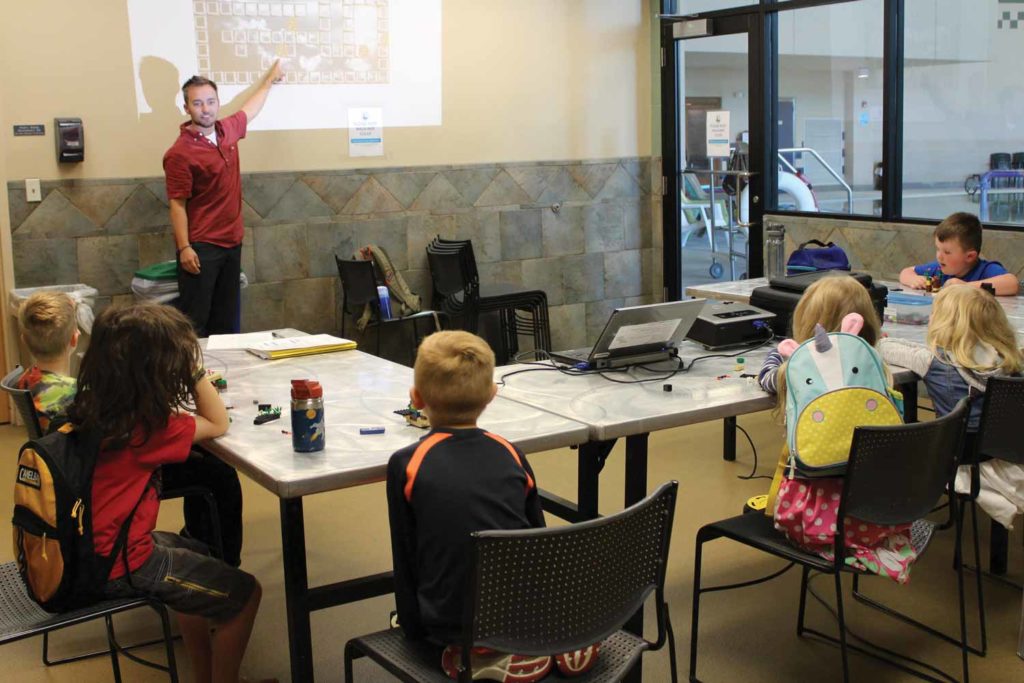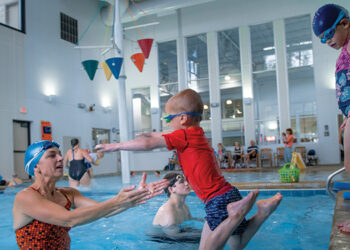Summer camps have been impacting the lives of children since the 1800s. But according to a 2013 American Camp Association survey, 54% of camp directors said they have added new programs to their offerings, most of which are specialty camps.
A specialty camp focuses on one particular skill or interest, such as science fairs, baking, sports camps, etc. These camps are great ways to teach kids valuable and unique skills. But can they also be good profit centers?
The Evergreen Park & Recreation District (EPRD) in Evergreen, Colorado, offers a variety of specialty camp options for youth who may be interested in topics such as art, science or computers. “This summer, EPRD will be offering a variety of specialty camps outside of our regular licensed adventure camps or sports camps,” said Kendra Head, the recreation supervisor of programs at EPRD. “These specialty camps include Artful Journey, Jedi/Fencing, Mad Science, Talk to the Camera, Miss Fit Girls, Tech Academy, Little Medical/Nursing/Vet School, and LEGO.”
Head said these specialty camps function as good profit centers for their facility. “We are able to offer these specialty camps where both an independent provider and EPRD are able to share in the revenue,” she explained. “The independent contractors usually have a minimum requirement of attendees in order to have the camps be worthwhile, so if those minimums are not met, the class could be canceled.”
In order to create excitement around specialty camps, Head said the independent providers they work with generally change the themes each year. This way, even if a child attended camp the previous year, it will be different the following summer.
Another facility with a variety of specialty camps is the Camp Olson YMCA in Cass County, Minnesota. “We offer sailing, horseback riding, mountain biking, fishing and leadership specialty camps,” said Lindsey Abrahams, the camp director. “Sailing, leadership and horseback riding have the most interest and hold campers’ interest in our programs as they reach their teen years.”
Abrahams explained as a non-profit organization, none of their general programs generate a profit. With that being said, they do offer specialty programming that brings in revenue. However, this revenue goes back into the organization for the success of all programs.
Like any program, specialty camps have challenges. For the Camp Olson Y, the biggest challenge is with the horse programs. “Horseback riding can have challenges as there is a high cost to the care and leasing of the horses for our program,” said Abrahams. “If our camps are not filled, the cost to run them can turn the overall program into a loss.”
In order to combat this challenge, the Camp Olson Y offers three different types of horseback riding. There’s a beginners course for ages nine to 11 to understand the basics, a riding camp for kids ages 11 to 15 that is more difficult, and an advanced riding program for ages 15 to 17, offering extensive training. Plus, in advanced programs, participants learn what it takes to work at the Camp Olson Corral.
Sometimes, cost can be a concern when choosing what programs to offer. To help, consider offering specialty camps you already have the equipment and resources for. As an example, the Camp Olson Y’s mountain biking specialty camp has had low numbers since they started it three years ago. However, they already have the equipment, so hosting this camp doesn’t have much additional cost. They are still able to give kids the chance to gain a new skill without facing a financial loss.
The EPRD hasn’t experienced many challenges in gaining revenue from their specialty camps, but there are two things to keep in mind. “The independent provider sets their own pricing for specialty camps, meaning they obviously need to be competitive so families will want to register their children,” said Head. “EPRD does have to be cognizant of the variety of camps and the weeks they are offered so the activities do not cannibalize each other.”
Living in a mountain community, Head said the ability to provide these specialty classes allows parents to have a variety of camps to choose from.
Without interest from families in your community, specialty camps will not be successful, regardless of which ones you offer. This is something both Head and Abrahams emphasized.
“EPRD evaluates what the community wants in order to determine which specialty camps to offer,” said Head. “The independent contractor provides the knowledge, instructor, curriculum and materials needed for the camps, and EPRD supplies the needed rooms. By offering unique experiences through specialty camps, EPRD is able to expand our program offerings.”
Regardless of what specialty camps your facility decides to offer, gaining your community’s input will allow you to continue to make a difference.
“Listen to your community and find where the interest lays,” said Abrahams. “Most kids will start camp in hope of trying new things, but will stay to explore those new skills in a more meaningful way.”











